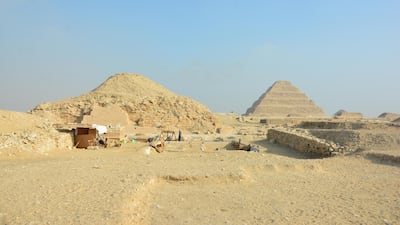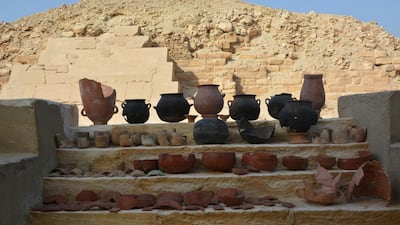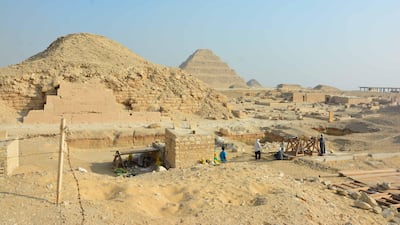Ancient embalming materials unearthed in Egypt’s famed Saqqara necropolis were found to contain plant extracts from the Eastern Mediterranean region, bitumen from the Dead Sea and two resin extracts from China and India, a recent study revealed.
A combined Egyptian-German team studied the materials at Egypt’s National Research Centre. Their findings were published on Wednesday in the science journal Nature.
The materials were found inside labelled jars unearthed from an ancient embalming workshop discovered 13 metres below the ground in Saqqara in 2016.
The workshop dated approximately to 2900 BCE, the study said.
Archaeologists also discovered a number of burial chambers along with the workshop, inside which the study’s authors believe elite members of society were buried.
The team used a technique called gas chromatography — mass spectrometry to analyse the embalming materials. They found extracts of juniper bushes, cypress trees and cedar trees, all native to the Eastern Mediterranean region.
The materials had also been previously linked to mummification as traces of them were found in past analyses of mummies.
In addition to bitumen, which the authors said was most likely imported from the Dead Sea, animal fats and beeswax, probably of local origin, were found in the materials.

The authors were surprised to find two kinds of resins native to Asia, they said.
One, called elemi, is extracted from Canarium trees that typically grow in rainforests in Asia and Africa.
The other, called dammar, is extracted from Shorea trees native to the tropical forests of India and Sri Lanka.
“Absolutely amazing,” said Dr Salima Ikram of the presence of imported ingredients in the embalming materials. “Who would have thought that they were getting stuff that might be coming from India?”
Ancient Egyptians had a sophisticated understanding of the ingredients’ medicinal properties, the study said.
It said some of the materials contained ingredients with antimicrobial properties.
Some of the unearthed jars contained materials that had been expertly prepared through rigorous heating or distillation, the study found.
“Their knowledge of these substances was incredible,” said study co-author Maxime Rageot, a biomolecular archaeologist at the University of Tubingen in Germany.
However, the chemical analysis raised further questions about how ancient Egyptians developed such extensive embalming techniques that left bodies so well-preserved that scientists could study them thousands of years later.






